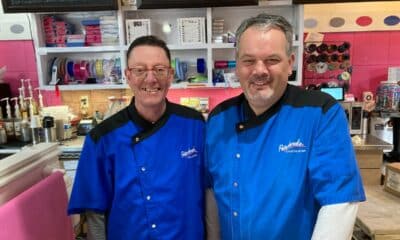City Government
7 Things You Should Know that’s Going on In Peachtree Corners [Podcast]
Published
4 years agoon
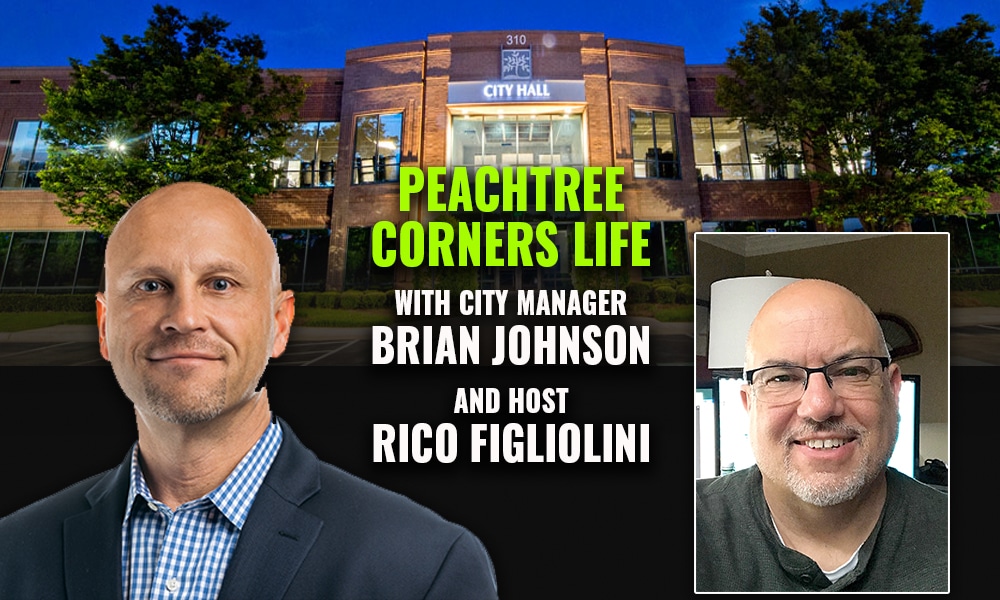
Prime Lunchtime with City Manager Brian Johnson
As always, every month we talk with Peachtree Corners City Manager Brian Johnson to discuss current topics and the future plans for the city. This episode includes more discussion on the East Jones Bridge project, the Governors Lake Multi-Use rezoning application, the refunding revenue bond, the pedestrian bridge, events on the Town Green, rezonings and Curiosity Lab at Peachtree Corners.
“We are in a position to save some money and do it without really doing anything other than
Brian johnson
using mechanisms that we have at our disposal and the current economic conditions and
interest rates as they are. And so that’s real savings that we can turn around and invest back in the community.”
Timestamp, where to find it in the podcast:
[00:00:30] – Intro
[00:02:58] – Fiserv Property and 55+ Community
[00:10:34] – Townhouses at Town Center
[00:13:49] – Rezoning
[00:22:38] – Refunding Revenue Bond
[00:28:34] – Curiosity Labs
[00:39:10] – Events at Town Center
[00:42:39] – Pedestrian Bridge
[00:45:26] – Closing
Podcast Transcript:
Rico: [00:00:30] Hi everyone. This is Rico Figliolini host of Prime Lunchtime with the city
manager, Brian Johnson. Let’s bring Brian on with me and, Hey Brian, how are you?
Brian: [00:00:41] Rico, good. Nice to be here.
Rico: [00:00:43] Great. Always good to have you on. So this segment, we’re going to be
discussing a bit about the bond resolution that was discussed. And I believe passed as the
public facilities authority. We’re going to be discussing the Governor’s Lake master plan,
Medlock bridge, the rezoning that’s going on there along with Curiosity Lab celebrates its first
anniversary. It’s hard to believe it’s been a year. And so we’re going to be talking about all that.
But before we get into that, I just want to thank our lead sponsor and a great sponsor, they are
Hargray Fiber. They’re a local southeast company that provides internet service and solutions
for our, for companies, small and large enterprise companies as well out there that are looking
to create a place for their employees to be able to continue to work off site as well as to be able
to now come back to work possibly in some places. So they’re not the cable guy, they’re a
company that really is involved in local community. And we actually will have an article about
them in the next issue and you can see what they’re doing here in Peachtree Corners. So check
them out at HargrayFiber.com or Hargray.com/business. I believe they have a promotion going
on, a thousand dollars visa gift card you can have, if you meet certain criteria to become a client
of theirs. So thank you Hargray Fiber. I appreciate you being our lead sponsor to these
podcasts. So let’s continue on with the city manager, Brian Johnson. So we could probably keep
talking about all sorts of issues, but the hot and moving thing right now we’re going to get onto is
what I’ve seen comments on, on the Next Door app. Of course, we’ve cleared up some of the
facts and some of the things going on in the last podcast. But let’s get back to it again for a little
bit. The East Jones bridge project which is also known as, the property is also known as the old
Fiserv property. 55 and older, 55 plus senior community center that’s been adjusted. I don’t
know if we need to go through all those details, but we certainly want to talk a bit about what’s
going on with the clearing that’s going on right now and stuff. So can you give us a little bit
more, Brian, about progress over the last few weeks on that piece?
Brian: [00:02:58] So, you know, since we last talked, you know, council did have a change of
conditions request by the developers to allow for the institutional use, the memory care and
assisted living, to allow the developers to build it at the end of the project, instead of at the
middle. And also to allow for the age restriction of 55 and older to be removed from some of the
product types. So at the end of the day, what you’ve got is you have, I think it’s probably fair to
say an age targeted community. It still has to be targeted to active adults. It still has to have the
institutional use. It still has a bunch of restrictions against, you know, constructing things that
would be considered family-friendly, young family friendly that is. But about a third of the units
could be inhabited by somebody who is not 55 or older. But two thirds of the units will ultimately
still have that, but that request was approved. And so the developer was able to maintain their
financing. So they started on that project. And of course, as is the case with any project that is
both as large as this one is, is on a piece of property that has been vacant for as long as this
has been and is of course developing in a more dense way, at least from a, you know, at grade
perspective. Meaning how many square feet within the parcel is going to have an improvement.
When you factor all those things in there, there’s been some, you know, significant change to
the property. You know, in that, you know, there has been a lot of the initial tree removal
necessary to construct, you know, new buildings and it’s, you know, it’s been eye catching
because we’re all used to looking in there and seeing just no activity and all these trees and
that’s it. But yes, so that has been significant, you know, there’s more, you know, construction
traffic there. Of course, part of the construction traffic actually, as it stands right now is also due
to Gwinnett County department of water resources. They are doing a large sewer main upgrade
project. And they are upgrading the sewer line from essentially the Forum, headed West
through Amber field subdivision and a number of the other subdivisions and basically crossing
underneath East Jones bridge right there, where the old Fiserv property interest is. And then
they’re running it down to the transfer station they have, which is basically at the back of
Simpsonwood. Where Simpsonwood, you know, meets the Chatahoochee but anyway, so
there’s a big utility project there also, but there’s a bunch of construction activity there. And, you
know, it’s again, optically it’s a big change.
Rico: [00:06:16] Yeah. Well it’s the same change though. That would have happened regardless
of the change of removing the 55 on those properties. It would have been because it’s the same
amount of units nothing’s changed with that. Even the site plan hasn’t changed, correct? It’s the
same site plan set up.
Brian: [00:06:32] That is a great point, Rico. This exact activity you would have seen regardless
of changing conditions. Now, you know, some people were not aware that this project had even
been approved two and a half years ago. So to some people they weren’t even aware a project
was coming. So I get that. And again, even from somebody who, you know, sees it every day,
when your eye is used to seeing, you know, this large area where there’s a bunch of trees and
no activity, it’s eye catching. But it is important to note though that, you know, the entire property
is within the river corridor. So all of the tree removal is keeping with the metropolitan river
protection act, the tree removal and, you know, replanting plan. For the development was
approved by AARC and as a part of the project. And so as with all projects like this, you often
see a period of time where, where the trees have been removed, but the replanted trees haven’t
been replanted yet and the buildings haven’t been there. So, you know, we are in that period
where there’s the least amount of vegetation on the parcel, but it’ll get better.
Rico: [00:07:50] They’re going to replant. I mean, granted, they’re not going to replant 50 year
old trees.
Brian: [00:07:54] It’s different.
Rico: [00:07:55] Forty foot trees. They’re going to be like 10, 12 foot trees, maybe. It’s going to
take some time for them to grow in. But you know, no different than quite frankly when I moved
here in ’95, no different than the Forum being built, then the town center, you know, years later.
Or even the people that lived here before Amberfield was actually built and all that had to be
removed. You know, the fact that the city bought Simpsonwood And they actually, Gwinnett
County with city help with a million dollars in there, to be able to save that 300, almost 300 acres
of land and keep it forest and smack in the middle of Peachtree Corners. You know, could we
have bought the Fiserv property? Would the citizens have had enough, sort of enough, courage
or belly to be able to take that and invest whatever that would have taken. Millions of dollars
probably that and preserve it? Doubtful. People have been complaining about that also. And like
you said, I mean, you know, that was forested typical of high technology companies. Siemens
was there. You have a beautiful campus, you have a great place for your employees to work.
Now it’s shifted from that to residential. You’re going to have clear cutting to a degree. And
obviously there’s a lot of land that’s back there. That’s not going to be clear cut.
Brian: [00:09:14] And that’s another good point too, is when you see from East Jones bridge, is
this alley. This narrow corridor, and you can kind of see around the corner, but what you can’t
really see unless you’ve got on the property, is there are a number of tree save areas that are
still in there. You know, there are some specimen trees that were saved. And so it wasn’t
completely clear cut. But too optically it kind of looks that way just because you were used to
just seeing it. So anyway, you know, but that’s proceeding. I guess the good news here is we
are getting that phase one. I mean they’re moving forward as fast as they can. And it’s always
good to see that, you know, the financing was in place for them to get this going. And so it’s not
going to live vacant you know, for a long period of time. Or again, for it to revert back to use by
right stuff that we don’t like. So, you know.
Rico: [00:10:09] And the fact that they clear cut it, you’d hope that they, you know, the
development will move fast. I mean, the worst thing to have is clear cut land that just sits there.
Brian: [00:10:17] No, they are wanting to, they’re wanting to get as much of the site work as they
can before the weather turns against us. And it either gets, you know, rainy or cold or both. So,
you know, they’re blowing and going. And you know, again, when that happens fast, it’s
oftentimes like, woah, that’s a change, but yeah.
Rico: [00:10:34] So let’s move along a little bit. Also the Town Center, those townhouses are
coming up. I’ve been noticing that. I think, I don’t know if half of them are up now or, but quite a
few of them are up. Is that going well, do you know anything about that development at this
point?
Brian: [00:10:50] Much like townhomes though, especially at that price point, they typically go in
phases, meaning they will do a percentage of them and then sell them. And the proceeds of the
sale of that, you know, phase then are used to go into the next one. They are proceeding. I
mean, there has, they have not hit any kind of a wall where they’re saying, Oh, we, you know,
we’re not able to fill units. So we have every indication that it is proceeding exactly how Lanar
had planned it to proceed. So, yes, that’s good. Rooftops at Town Center slash Forum, you
know, Rooftops at what has become art downtown are important because those are walk up
customers to the businesses that are there that help keep these businesses in business.
Rico: [00:11:45] Are you hearing anything more about, I know we asked about, I asked about
this a month ago, but you know, things change, about the apartments project? Slash Indigo on
Town Center? Anything more about that?
Brian: [00:11:59] No. I mean, you know, again, other than having been notified that, you know,
hotel construction is probably not in the cards for that site within the time period we gave the
owner of the site to construct it. Because he was given, I believe it was four years to start
construction to actually, you know, have an approved site plan and move forward with it. And
he’s now within two years left. And so yes, there will not be not because our site is not, but there
is nobody building new hotels right now.
Rico: [00:12:39] Is Hilton hotel closed? That’s what I heard. The Hilton is closed and the Marriott
hotel might only be about a 20% occupancy rate. I could be off, but I understand the Hilton hotel
is actually closed at this point.
Brian: [00:12:54] I don’t know the answer to that. I have not heard that. I do know that as Hilton’s
go in Metro Atlanta, that is one of the better performing ones. According to, you know, Gwinnett
County and the tourism, you know, who has a real good. But, you know, these, there are
transitions. I also do know that that property had some upgrades that have been kind of in the,
on deck circle for them. They may have taken this as an opportunity to do those while the
occupancy is down. And, you know, and I know that the Marriott, all hotels, occupancy is way
down. I don’t know what percentage, but we do, I see Marriott’s parking lot because I drive past
it more than the Hilton. And there are significant enough cars in the parking lot for me to know
that it’s not just staff. So with…
Rico: [00:13:49] You know sure. And the Hilton I’m thinking is temporarily closed to what I
understand from a couple of restauranteurs that I’ve spoken to. Other developments going on
the Governor’s Lake across the Peachtree industrial Boulevard, depending where you come
from. 75 acres, they’re looking to rezone that to multi-use development. How’s that going? I
understand there’s a first read that happened this past Tuesday. How does that look to you?
Brian: [00:14:17] Well, so to go back about three to four months. Those who you know are
involved in the city may remember there was an application, a rezoning application by the owner
of the undeveloped property in this area to rezone a portion of the property he owns. He owns
about 87 total acres over there. And he was wanting to have about a third of it rezoned for
townhomes. And they were basically on both sides of Jones Mill Road in that area. And his
application was significant to the city because to rezone it in the direction he wanted away from
industrial and towards residential or mixed use, was significant because he was asking the city
to change our future land use map and our comp plan. Because, you know, the rezoning would
have been contrary to how the future land use map looks for that area. And so it’s kind of a
significant move in the city’s eight and a half years. We have never had a rezoning that required
us to change our future land use map. And as you know, as a former planning commissioner,
you know, that that map is pretty, it’s kind of sacrosanct because it’s, that’s kind of the get guide
you use. If people want to rezone and you’re all like, okay, they want to resume, well, what do,
what is our future land use map hold for that property to ultimately become in our mind. And if
it’s not headed that direction, it causes you to pause.
Rico: [00:15:55] Also, you’re planning things out. The County and the state, they’re planning
roads, water, traffic. I mean, it’s not just, we rezone it it’s because there’s plans being developed
because of that plan.
Brian: [00:16:06] Right. And so it’s kind of a big step. And so there was some concern by council
expressed to the applicant that, you know, Hey, all right, this is a big step. Well, what about the
other two thirds of the property that you own that’s undeveloped? Because when you consider
the whole thing, it’s basically the last large remaining undeveloped track we have in the city. And
so there was some discussion about what that would be. And so then the applicant or the owner
withdrew the application. And has gone back and has had some discussions and done some
things, you know, planning wise and has resubmitted a rezoning application that includes the
entire remaining undeveloped acreage. So that’s what the app, that’s the application that’s going
back through council instead of just wanting to rezone a portion. It’s to rezone the whole thing.
And so that discussion, which will, you know, when it ensues will be about all of it.
Rico: [00:17:08] Does it, does it pretty much include the townhouses where he had specked
them out? I guess he must have submitted a site plan, I guess.
Brian: [00:17:15] So, originally there was two, it was really two separate rezonings for each side
of Jones Mill Road. There was about, I want to say it’s about 12 acres on what would be, I
guess the South side of Jones mill road, the farther away from the Governor’s Lake property
that had already been approved by council. That company building those homes, McKinley
homes had been interested in taking and doing their product on the other side of the road. That
had been part of the application. When the owner withdrew the application, he did decide and
McKinley homes are still moving forward with the original, like 12ish acres townhomes. That
development is still happening. But the part that was in the 80 acres, has been withdrawn. And
now it’s just waiting on the entire rezoning to work its way through the system.
Rico: [00:18:15] See my fear would be that he just came back three months later and decide,
let’s do this. And then still build what he wants and then still, maybe not do the rest of it. So, you
know, multiuse development means a lot. It means different things to different people, right? It
could be… I mean, that area is perfect for mid-rise, let’s say with office retail, and creating really
nice look to it, or it could be someone that says, well, we’re going to have townhouses in this
portion. We’re gonna have offices here and we’re going to have retail separate. You know, I
mean, hopefully there’s, like you said, it’s the last 75. It’s the last largest parcel. And, then
where it’s located could stand to have a better their development. And something forward
thinking first is the run of the mill, same stuff that they’re always is. They break up the parcels.
So we’re going to do residential here. We’ll do some office here. We’ll do some retail here and it
becomes a strip thing and stuff versus something a little bit more thought out.
Brian: [00:19:23] We agree. Remember that was by design included in the area that the
redevelopment authority will be looking at. Council recognize the importance of it, which is why
it kind of wanted to have a discussion about all of the parcels so that we make sure that it’s
done in a, you know, kind of cohesive well-thought-out manner. We definitely do not want to
necessarily have it just cut up and have conventional use there. I think it’s an opportunity. So
what we’re trying to do, we’ve kind of taken the property and help the applicant. You know,
guide them a little bit, say, look, break the parcel up into kind of pods, or we call it a bubble plan
where you kind of break the large thing up into areas of the site that may have, that may be
better served for certain types of uses. You know, like maybe closer to PIB might be a better
place to have businesses that need high visibility. You know, maybe closer to some of the lakes
back there might be a good place to have some, you know, multifamily, you know, I mean,
maybe there’s some mix. I mean, so we’re trying to, you know, get the applicant to come give
the applicant flexibility, but ensure that the ingredients are there for the applicant to maybe
come up with a product that we all are like, wow, that’s really cool.
Rico: [00:20:52] So there’s a second read that’s going to happen in October’s city council
meeting.
Brian: [00:20:57] November city council meeting.
Rico: [00:20:59] November. Okay. November. And then it’s going to be voted on after.
Brian: [00:21:04] It’ll be voted on at the same meeting.
Rico: [00:21:08] Okay. All right. So if anyone cares about that and they should, that’s the
meeting to be at, right? You know, like you said, the weren’t a lot of people maybe that
remembered or were around two and a half years ago about the East Jones bridge project. That
also went through public notice that also went through public meetings. It was not a surprise to
anyone. There was 900 plus acres. What was surprising to me back then was that no one that I
knew really cared about the density there. They will all for it, regardless of 55 and older, it’s like,
it doesn’t matter. It’s still 900 units, but you know, everyone was, I didn’t hear a peep and they
might’ve been some people maybe, but obviously it wasn’t enough. I don’t remember city
council, and I went to that city council meeting. So I can’t help but tell people, if you are
concerned about certain things, you really need to show up to the city council meetings, right?
Even in COVID, I mean, you could do that safely there, I think. So there’s that. The, one of the
biggest things also that just happened in this last city council meeting is the public facilities
authority that was established. A refunding revenue bond that was voted on and approved to be
put together. And so tell us about that. That’s to pay back some of the purchase money I think
for city hall, we said, and for the Chili property, that’s next to the Town Center property that was
purchased. So give us a…
Brian: [00:22:38] So a number of years ago, we created the public facilities authority. The
purpose at the time was for the city to have a mechanism to enter into long term leases. And the
reason we were doing it is because we had just entered the final year of the lease at the original
building that was city hall. And so when you enter the last year, you start to talk about, alright
what do we want to do? Do we want to stay here? Do we want to find another location? Do we
want at lease? Do we want to buy? But the one thing that, this was shortly after I got to the city,
the one thing that I knew would be a constraint would be if the city itself was entering into a
lease. Cities cannot enter into long term leases because councils cannot commit future councils
of obligations. So the city can have like, can enter into a contract that has five, one year
automatic renewals. Technically speaking at the end of every year, the city has to have the
ability to say we’re out without any repercussions. So it’s really one year leases. But you can
imagine that if the city is negotiating with the property owner for a lease, if I wanted to lease
something from you, and I said, I can only do, guarantee you one year at a time. Even though I
want to do it for five years, but each year I can just leave. You wouldn’t give me the same terms
with that much flexibility on my part versus if I came to you and I said, yes, I’m prepared to
execute a five year lease. And if I leave before the five years, you get to keep, you know, down
payment or there could be other, you know, penalties. So the public facilities authority was
created so that if the city was going to lease city hall, the public facilities authority could be the
one who negotiates and enters into the lease because it can enter into long term leases.
Rico: [00:24:45] Right. It can also do what they’re doing now.
Brian: [00:24:50] That’s correct. So we didn’t use it. Because as you know, most people know
we found a deal that we could buy a building, renovate it, lease the upstairs. And at the end of
the day after what do we have? Like seven years left, we will own a 60,000 square foot building.
Versus, for only about $400 a month more than we were paying to lease 12,500 square foot. So
really great deal. We bought the building, but recently the city’s finance director is, you know,
and I have some good staff members, was kind of kicking over stones to see where maybe we
can, you know, look for savings and this and that. And did a little bit of consulting with some,
you know, consultants of ours and realized that with the current economic conditions as they
are, using the public facilities authority the city could take the two debt notes that we currently
have. One on the city hall building and one on the property, the remaining undeveloped property
out at the Town Center. That’s along, you know, the town green there. And put them together
and have the public facilities authority do a float of public bond and refinance it. And so we’re
going to use the public facilities authority to combine those two notes and put it out on the
municipal bond market. And the current terms as we will get them look like we will be saving
about $1.2 million over the course of the note. Or about a little over a hundred thousand dollars
a year for 10 years.
Rico: [00:26:42] Wow, that that is very smart. Who is your finance person?
Brian: [00:26:48] Cory Salley is the name of our finance director. And so yes, that is why I
recruited him. And he has been my finance director in other municipalities and he has done it
there too. And so yes, that is why you surround yourself with people who are smarter than you
and I have done that in, in all of my you know, department level positions that work directly for
me. So, yeah, it has been, you know, that’s just an example where we, you know, we are in a
position to save some money and do it without really doing anything other than using
mechanisms that we have at our disposal and the current economic conditions and interest
rates as they are. And so that’s real savings that we can turn around and invest back in the
community.
Rico: [00:27:33] So that money that’s being raised is that raising just the amount? I think that
was about 5.1 million or so. Is that just raising that or is the bonds are the bonds going to raise
more money?
Brian: [00:27:46] No, no, no. You know, the 1.2 million over the course of the 10 years is just in
the savings that we’ll realize yearly. But we’re not pushing the, we’re not amortizing it over any
longer period of time. And it’s just that the interest rates are better when we do it on the public,
you know, the municipal bond public market, then the privately placed bonds that we did initially.
And the PFA has some aspects to it that makes, you know, bond investors, you know, feel
better. So when you just combine all those ingredients in the economic conditions, this is just
savings realized by merely having the bond redone.
Rico: [00:28:29] Sure, okay. So it’s the same money, it’s just done in a different way.
Brian: [00:28:32] That’s exactly right.
Rico: [00:28:34] Alright. We want to also, I want to recognize the fact that city, the smart city
we’ve been involved in. I mean, you’ve been speaking at a lot of places that deal with smart city
technology. A lot of conferences, there was a big smart city expo here in Atlanta a year ago.
Curiosity Lab at Peachtree Corners celebrates its first anniversary this past week or so, a couple
of weeks ago. So it’s been a year. A year of development work, a year of having companies
come in. Companies come in, companies leaving. I think we had the Olie at one point. It’s not
there now, but we have E-Scooters. But there are certainly more companies like Bosch
technologies I believe is there. There’s a bunch of companies coming in. So where are we with
you know, Curiosity Lab, as a magnet for bringing into a living lab, different technologies? It’s
not just autonomous vehicles. People may just think it’s that, but it’s a lot more than that, right?
It’s everything that involves 5G technology, smart city, everything from lamp posts to traffic, to
buildings, even. I mean we have ASHRAE building a building. Renovating a whole building with
new HVAC that’s supposed to be smart technology and cutting edge, right? So tell us a little bit
about what’s going on now a year later with Curiosity Lab.
Brian: [00:29:49] Alright so, you know, as a reminder, when we decided to build, you know, a
living lab, you know, Curiosity Lab, the purpose then and now is for economic development. And
so this was our way of looking at economic development. And in addition to doing your
conventional stuff, we thought we were in a unique position to leverage something that the city
already is uniquely qualified to leverage. And that is take public infrastructure we own and make
it available to private companies to use for the purposes of testing or demonstration. And by
doing that, by offering something that private companies can’t do on their own, we get activity
and that’s where we’ve benefited. So again, the thought here was if you were a company that
wanted to come out and use Curiosity Lab just for one day. Wanted to come out here and run a
vehicle up. If you wanted to put a device out there and track some things, whatever you did, but
even just one day. Generally speaking, you’re going to still be hungry at lunch and that means
you’re going to probably eat in our restaurants. That’s activity. If you’re here a couple of days,
cause you’ve got a team and you’re going to test, you’re going to probably stay in our hotels.
And there’s the activity that we, by creating this magnet get. Now we were at the time that we
did this, our wildest dreams were that we have what’s called permanent economic development
activity is the recruitment of companies to do things in the city permanently that weren’t there
doing there before that action. And we have had that happen even in the first year. Because of
Curiosity Lab, we had two buildings that are on the track itself. One was the former Honeywell
Aerospace building and one was former recall building. That had been vacant for a number of
years and the fact that in Honeywell building’s case longer than the city had been a city. And
because of Curiosity Lab, two companies decided to relocate their global headquarters here.
And the final reason that they chose it was this location over others that they were looking at
was because of Curiosity Lab and the synergy they wanted to be a part of with the companies
that were here doing testing. And these are companies that are not even direct users of the lab,
but they wanted to be close to companies that were using it because they were like, we may
end up having synergies together. I mean, you mentioned Bosch. We have Cisco that has
become a partner. In addition to it we’ve got Georgia power and, you know, T-Mobile, which
used to be Sprint. And you know, Georgia tech and Kennesaw state university. And these are
companies that are doing real things out here, bringing people out here to test, to demonstrate,
to collaborate. It wouldn’t be here if it hadn’t been for us, these companies want to be here. And
so within the first year, we’ve already filled over a hundred thousand square feet of vacant office
building and had over 500 jobs move here that wouldn’t have had if it hadn’t been for Curiosity
Lab. And those are people who ultimately are going to want to live close to where they work.
They’re going to shop in our stores. They’re going to eat in our restaurant. Primarily they may be
renting or buying houses here. And so that’s real activity. And that’s why we did this and it is
paying in spades. We’re excited about the possibilities moving forward, but, you know, we just
have activity that we would’ve never had if it hadn’t been for COVID the hotels were that are
especially the four that are on the track. And even a couple that are just, you know, like just a
couple of hundred yards off track, were already showing increased numbers. Of you know, of
people staying in the hotel that could say, yeah, we’re here because of something at Curiosity
Lab. And so that’s why we did it. That’s why it has been working. That’s why it continues to
work. And, you know, we’re working hard to, you know, continue those efforts. So when this
COVID, you know, fog is lifted, we’ll hit the ground running again. And like you said, we’re
talking at a lot of conferences, you know. Of course it’s, you know, virtual conferences right now,
but the word gets out. And people are, you know, lots of companies are here kicking the tires
saying, Hey, you know, we want to do something. One interesting note is, you know, so
Curiosity Lab has a vehicle that is available to companies to put technology on, to test, you
know, in the advanced vehicle arena. And with COVID, we’ve had to get creative in how we do
things. We have an Israeli company that is in the LIDAR you know, arena. And they have a new
LIDAR that they want to test on a vehicle for use in autonomous vehicles, you know, later on.
And, but because of COVID, they can’t fly over here and do it. So what they’re doing is they are
shipping the technology, the components to the States. They’re shipping it to an office they have
in New York city and then that individual is assembling it. And then is shipping it from New York
down here. And they are virtually going to talk us through some technicians we have on how to
install it on the vehicle and start testing it. And then without actually having people having to fly,
you know, given that they can’t do it right now. So we’re, we’re thinking outside the box. But you
know, those kinds of things will help again, get some people and some activity out here, so
exciting stuff. But again, it’s hard to gauge in some cases how much more activity has happened
before because of Curiosity Lab. But in year one, we at least have two buildings and two
companies and over 500 jobs that we can put our finger on and say, thanks to Curiosity Lab.
Rico: [00:36:21] For sure. And there are definitely other companies still coming to Peachtree
Corners like CarMax with their consumer, I think their call center. They’ve added, I don’t know,
three, four, 500 jobs or something.
Brian: [00:36:32] Yeah. CarMax’s experience center has expanded beyond 500 jobs even in the
COVID environment because we worked hard when they initially located here. It’s about
relationships. And if you work hard to develop, you know, to cultivate a relationship when that
corporate office, it was time for them to look at the areas of the US where there were already
experienced centers and they wanted to expand because they’re doing well. They could have
gone to any of them, but they decided to expand here because our economic development
department and my individuals that are in that are, you know, work really hard to have that
cultivate those relationships and they pay off.
Rico: [00:37:15] You know, we were discussing before we started the podcast that, the
economy, has really taken a hit. But that, you know, there’ll be, there may yet be several more
businesses, closing restaurants and stuff like that unfortunately. But that, you know, there’s
going to be such a celebration I think after, you know, hopefully within, by maybe second or third
quarter, we were talking 2021. Where, you know, the vaccine has been spread out to people.
Herd immunity might take hold if there is such a thing with this. And businesses will slowly be
coming back as they are now. But I think people will be more confident later and you know, no
doubt there’ll be an explosion of activity. We’ll probably see an economic expansion at that
point. Because I even see it now, there are businesses opening now that are taking advantage
of different things. You know, tutoring companies, new franchises opening because of the
distance learning and things going on with that. People taking advantage of opening up new
restaurants, especially in Atlanta. When you’re seeing restaurants closing, but there are
restaurants opening because they’re able to get better rates. They’re able to find equipment that
was someone else’s equipment. So they’re smaller investments in some of these restaurants
opening up. And of course people, maybe because of the you know, out of work and stuff,
they’ve decided to open up their own business. They’re finding places to do that and maybe
businesses to be in. So there’s a little bit give and take in this environment it seems. You know, I
know the city has been very helpful to business community, especially holding off, you know, at
the beginning, holding off business license payments and stuff like that. I know that sign
ordinances have been, you know, adjusted to allow business, to be able to put up.
Brian: [00:39:08] Outdoor seating…
Rico: [00:39:10] Yeah. And even the events that are going up, so the city’s still putting on
concerts. The last one even, you know, I mean Town center can hold 5,000 people, I guess. But
maybe there were about five or 600 people there, but that was the max, right? You guys sold
out that within 24 to 48 hours I think. Sold out, you know, and…
Brian: [00:39:32] Well, you know, speaking of that real quick. It’s interesting, you know, we do
feel strongly about if we can do it, continue to do it responsibly and safely to have events out
there because A, it helps the businesses at the town center. Because oftentimes those people
spend money before or after. And too just, you know, it’s a quality of life thing. Our residents
want to have something to go do and just, you know, get out of the house or whatever. But we,
you know, we can only it’s just around 600, maybe just under max where we had 6,000 at that
second concert last year out there. And so, yeah, it’s a stark difference, but you know, there’s a
lot of demands. So when we, so you got to reserve the circles, you know, that have put it out
there. We sold out in nine minutes. For drive in, this Saturday night, nine minutes.
Rico: [00:40:34] Wow.
Brian: [00:40:35] So, you know, people want to. Now, unfortunately we’re struggling a little bit
with, it’s really we’re, because it’s limited. We want it to be for Peachtree Corners residents.
Rico: [00:40:48] Yes.
Brian: [00:40:49] And there might be some indications of some gaming of the system by people
who don’t live in Peachtree Corners. So unfortunately there might be some, you know, residents
that we would have liked to have participated in this, and they can’t because others, you know,
moved in. But we’re working on trying to, you know, we’re not trying to have everybody show us
their ID, but it is, you know, it is unfortunate when, you know, we’re trying to make it for our local
community and others not so local jump in and get it. But anyway, yes, those are the little things
that we’re trying to do to try to, you know, local economy as much as we can.
Rico: [00:41:28] Yeah. I never thought about that, but I guess there would be people coming in
from outside that would want to see the concert. It’s tough. You know, and there’s probably
some somewhat easy ways to do it, but intrusive ways to do it, right? Because you’d have to
know where people are living, geolocate them. Maybe they purchase it through an app and or
maybe they registered their home somehow as part of that purchase and stuff. But, oh well
things happen. But the city’s moving along. Great, great stuff is happening. I’m really proud of
the way the city has been moving along. Sure there’s things that I, you know, that I hate too.
The clear cutting and things, but those are part of development, would have been on the East
Jones bridge road would have been the same thing as we see now, regardless of anything
happening. But you know, we are an expanding city, and it’s going to be that way. Nothing
shrinks. Unless you’re a small town out in some place and you’re losing businesses and then do
you want to be that town? You know, so I don’t think so. I think we want to be able to.
Brian: [00:42:39] We would agree. I mean, again, growth, you know, and change can
sometimes be uncomfortable and, but it’s better than the alternative because there is no pause
button. You’re basically either growing or you’re not. And we’d much rather be the growing than
the not. One other thing, when it comes to that though that may be of interest is, you know,
pedestrian bridge. So we’ve got, we are just a couple weeks away from finishing the bridge.
We’ve got the elevators, you know, got to go through final inspections and all that kind of stuff.
On the road you probably have seen the lanterns as we call it, which are the caps on the towers
that will have interior lighting. So those are what are being assembled on the side of the road.
And then a crane will lift them up to the top and those will be installed. And we’ve got the stairs
going down from the bridge into the Forum side are getting ready to be constructed. And then
the last is the panels. If you look at the bridge, you’ll notice that it looks like about four panels on
each side. There’s gaps for four panels to come in. Those panels should be getting here shortly
and assembled. Those are the remaining panels that had to be precision cut based on how the
arch came down through the panels. And, you know, there’s a lot of very precise cutting of those
panels to get them in. And so, you know, lead times, you know, companies are just not
operating as efficiently. The company that cuts the panels had, is a smaller precision metal
company that had a big COVID outbreak. So it kind of shut them down for a period of time. And
so anyway, just wanted to let everybody know that, you know, the bridge is not but a number of
weeks away from it being done. And then, you know, when it’s open, you’ll be able to walk from
one to the other and then we’ll be able to remove at great crossing opportunities down below it
at town center. And so that means that there won’t be the ability for a pedestrian to force the
traffic to wait at that intersection longer because they actuated the pedestrian crossing, that’ll be
removed. So it should help traffic at least get through that section quicker because there will
never be that time when you’re sitting there with no, you know, waiting on it to be changed but
aunt Mabel, is still. So anyway, that’s where that is.
Rico: [00:45:26] Okay. It’ll be the normal traffic of cars moving around other than, someone
pressing that pedestrian button. Yeah. Well, great. We’ve spent a good 45 minutes talking about
things that affect the city, the residents of this city. And it’s always good to be able to get the
facts, to be able to discuss things that are going on, things that are upcoming. It’s always a
pleasure, Brian, to be able to do this with you.
Brian: [00:45:52] Hey, thanks for having me. Thanks for providing this, you know, vehicle to get
information out for, you know, our residents. People get it different ways and your podcast is
certainly one that I hear people getting it from. So I appreciate the opportunity.
Rico: [00:46:05] Love doing it. Thank you, Brian.
Brian: [00:46:07] All right, take care.
Rico: [00:46:09] Bye.
Related
City Government
Crime and Safety Concerns Dominate Town Hall Meeting
Published
1 month agoon
March 27, 2024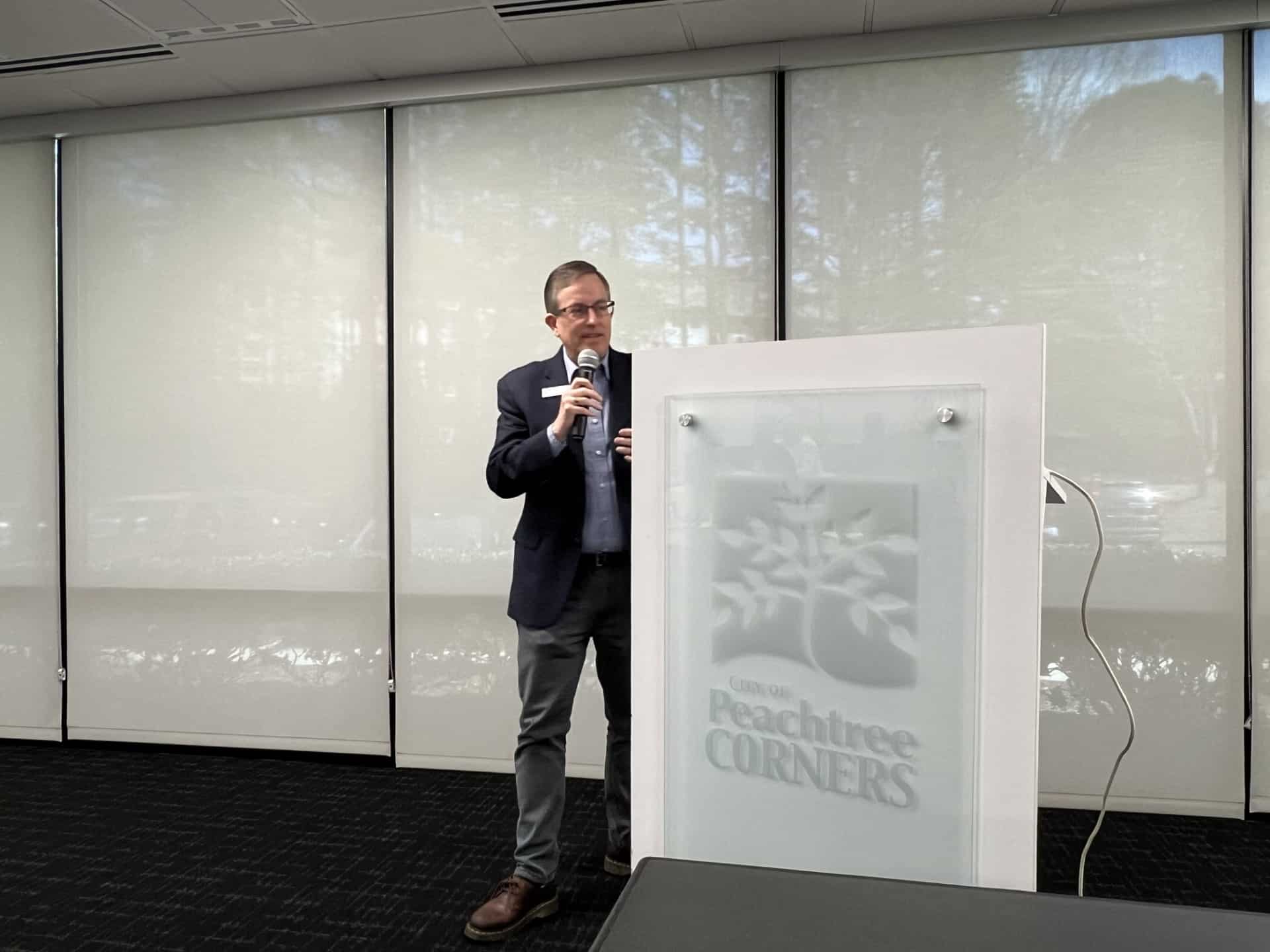
Besides his monthly newsletter, Peachtree Corners City Councilman Eric Christ occasionally hosts town hall meetings to allow constituents to catch up on what’s going on and give him feedback on a variety of issues.
On Sunday, March 24, several dozen residents and stakeholders gathered for updates at City Hall’s Community Chest room. Christ probably expected the gathering to last 90 minutes at the most, but the discussion lasted nearly three hours as he shared information about the Marshal program, development projects, the new dog park, deer and the May 21 primary election.
Cutting down on crime
Probably to nobody’s surprise, crime and public safety took up the bulk of the meeting. Christ wanted the audience to take away that crime in Peachtree Corners is down 25% from pre-pandemic times. He showed a chart with crime rates from 2019 through 2023 that showed a significant drop in crime overall.
- Residential burglaries are down by 48%.
- Thefts are down by 34%.
- Robberies are down by 24%.
“Prior to the pandemic in 2017, 2018 and 2019 we were averaging about 100 total [part one crimes] every month, and that dropped almost by half during the pandemic. Then, in 2021, it went back up a little bit again,” said Christ.
Even though the rate has increased year over year since 2020, it has not returned to pre-COVID levels. However, compared to the previous year, crime has increased by 23%. One solution may be the new City Marshal program that kicked off in November.
Having a relatively small population, the most heinous crimes, such as homicide and aggravated assault, have stayed lower than in many other areas. However, auto thefts, car break-ins, robberies and other property crimes remain somewhat high.
The City Marshal’s involvement
Chief City Marshal Edward Restrepo gave anecdotal evidence that the marshal program is working and will continue to get better because it fills the gaps left between the Gwinnett Police Department and the city’s code enforcement department.
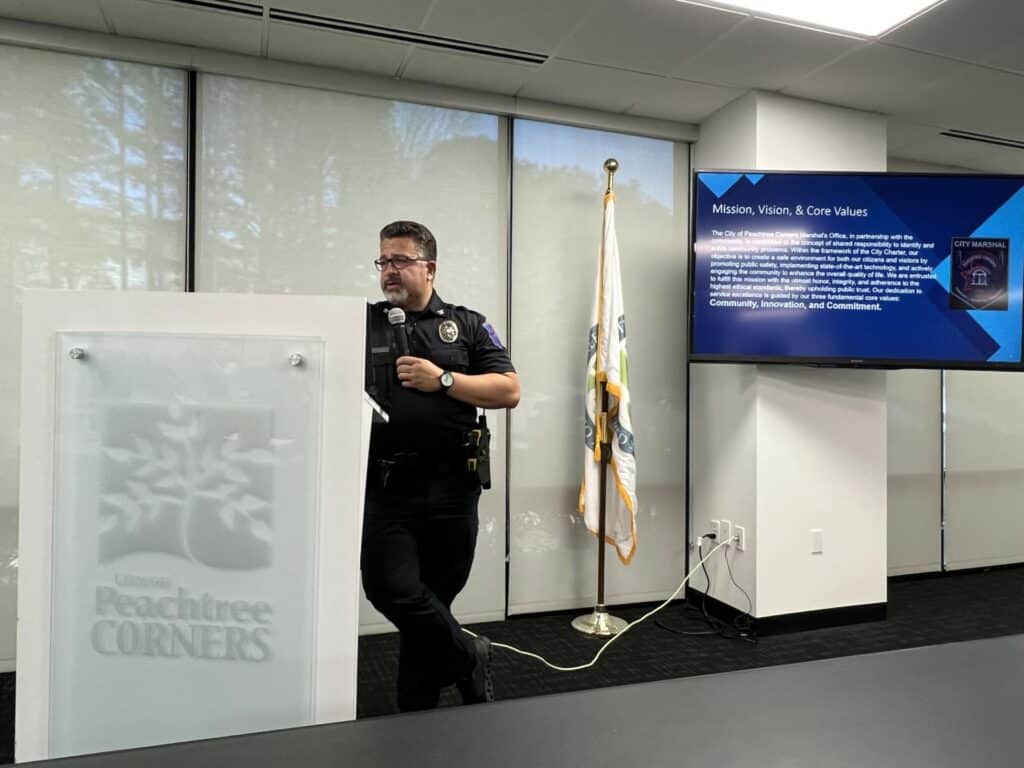
“We had a jewelry store robbery, and about the time we came in, we had started building up the camera registry as well as the integration system of cameras all around the city,” said Restrepo. “With only three of us, we have to rely on technology as much as we can.”
Although the marshals didn’t apprehend the bad guys, their assistance helped other law enforcement officers do their jobs more effectively. Several residents asked if there were plans to increase the marshal force to provide 24-hour, 7-day-a-week service.
The initial cost was around $900,000, said Christ, and maintaining the three officers and an administrative assistant will require about $700,000. Although Peachtree Corners doesn’t levy a property tax, the city’s share of county taxes goes toward that type of expense.
“It’s up to the people of Peachtree Corners if they want to increase the program,” said Christ. “It will come at a price.”
Those in attendance indicated that they thought that would be money well spent. Several said they liked seeing marshals at city-sponsored events because it sent a message that Peachtree Corners is serious about keeping its residents and visitors safe.
Christ said he and the rest of the council would consider that, but he reminded everyone that they should still report crimes to the police.
“I’ve had people tell me that they left a message on the city’s answering machine on a Friday evening and hadn’t heard back,” he said. “I tell them the first step is always to call 911.”
Catch the episode of the UrbanEBB podcast featuring Edward Restrepo from this past January here:
Related
City Government
Ora B. Douglass Swears in as First Black Female City Council Member of Peachtree Corners
Published
3 months agoon
January 20, 2024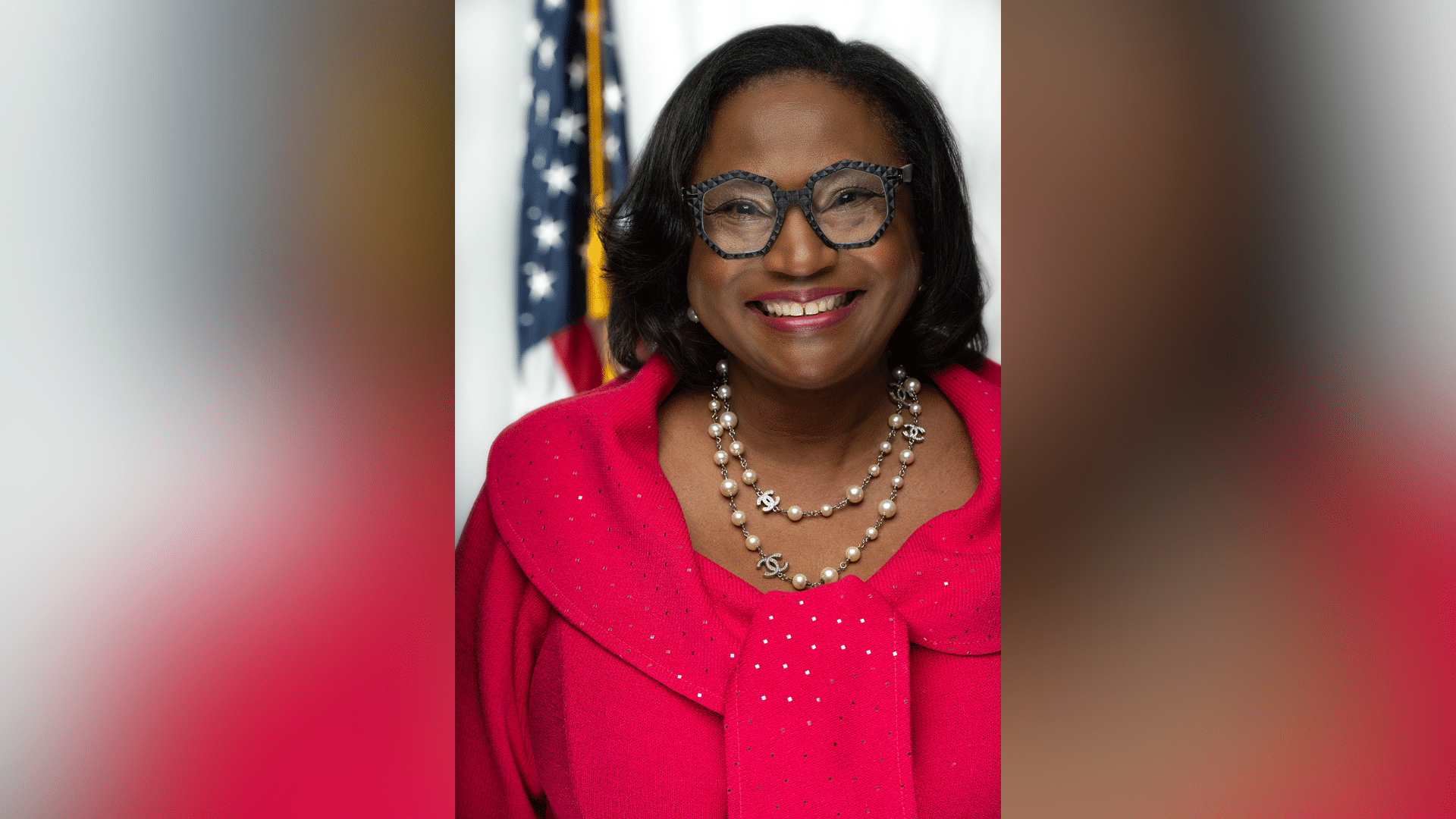
After a successful run for the position of Peachtree Corners City Council Post 5 Ora B. Douglass will be sworn in as Peachtree Corners’ first Black female city councilmember on Tuesday, Jan. 23 during the regular City Council meeting.
Upon her retirement, Douglass was elected to the seat vacated by Lorri Christopher, one of two females to serve on the Peachtree Corners City Council, the other was Jeanine Aulbach.
Douglass’ inauguration continues Peachtree Corners’ commitment to diversity and inclusion by not only electing its first woman of color, but by recognizing her status as a military veteran and an advocate for better health care, education and quality of life for all.
She earned her Bachelor of Science degree in nursing from Florida A&M University and earned a Master of Nursing degree at Emory University.
After graduating nursing school, Douglass was commissioned an officer in the U.S. Army Nurse Corps. A veteran with over 13 years of service, she has been stationed in Hawaii and was part of the U.S. Army Reserves.
Douglass has chaired the most recent Veteran’s Day event in Peachtree Corners and looks forward to more efforts to recognize and celebrate the multiple cultures and contributions of the residents.
With her long history of community service in the area, her motto has always been “service first.”
In 2014, she led a group of members in chartering the Psi Omega Omega chapter of Alpha Kappa Alpha Sorority Inc. in Peachtree Corners where she served as president for over four years.
Psi Omega Omega chapter provides community service to Peachtree Corners residents from high school students, senior citizens, entrepreneurs and those in need. In addition, the sorority has partnered with Gwinnett County to keep 1.6 miles of road clean on Peachtree Corners Circle.
Douglass also established The Georgia Pearls of Service Foundation (GPOS), a 501(c)(3) fundraising arm of her chapter and serves currently as president of the foundation.
The GPOS foundation raises funds each year to provide scholarships to high school students and donations to selected community service organizations.
Douglass was appointed International Chair of Community Programming, a committee with representation from the 10 regions of the AKA sorority in providing direction and oversight of the program from 2018 to 2022.
The program defined the framework for Alpha Kappa Alpha’s commitment to service that is embraced by its 300,000 members and over 1,000 chapters located throughout the world.
Douglass and her team partnered with Walgreens and traveled to 36 states including a Native American reservation and to the country of Honduras during the COVID-19 pandemic.
The group administered mammograms, COVID vaccines and provided testing to low-income citizens.
Douglass was born at Atlanta’s Grady Hospital, but was raised in Fort Pierce, Florida. Orphaned at 18 months old, Douglass hasn’t lived a charmed life.
She has worked hard for her accomplishments and knows the importance of a good education, perseverance, dedication and service to all mankind. She promises to utilize these qualities in service to the citizens of Peachtree Corners.
She has worked at numerous hospitals in the Atlanta area including Emory University, and Grady Hospital.
At Northside Hospital she was vice president of Quality and Risk Management. She served as director of Community Home Based Nursing at the Veterans Administration Medical Center in Atlanta and VA Medical Centers in Carrollton and Oakwood where she directed a $10 million grant to provide homecare services to our veterans.
Douglass has practiced progressive clinical, managerial and healthcare administration for over 30 years.
Douglass currently serves on the board of the Fowler YMCA in Peachtree Corners and is also a member of the Peachtree Corners Rotary Club. Douglass enjoys playing pickleball, traveling, cooking, gardening and providing boxes in her yard for Eastern bluebirds to nest each spring.
Douglass is married to Dr. Adrian Douglass. They have four children and three grandchildren. She and her husband are members of Friendship Baptist Church in Duluth.
For more information, go to www.peachtreecornersga.gov.
Click here for more Peachtree Corners City Government news.
Related
Business
The Mayor’s Look at Business and Innovation Successes in 2023
Published
4 months agoon
December 29, 2023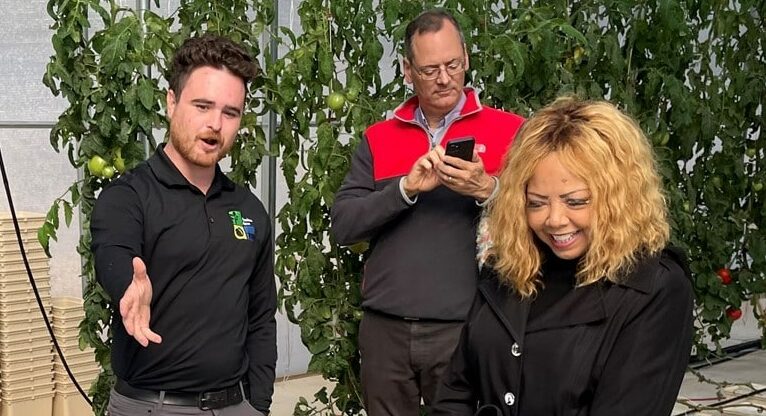
From Peachtree Corners Mayor Mike Mason
As the year comes to a close, it seems like a good time to consider our businesses and say ‘Thank You!’ for helping to ensure our city’s success.
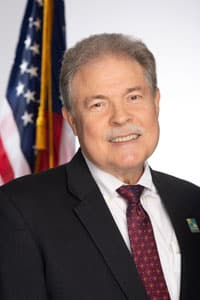
Business and innovation have always been at the heart of who we are as a community. We are a city that grew up organically around Technology Park. So, as we look back at 2023 at some of the many occurrences worth noting, I’d like to say ‘Thank You’ to our businesses, large and small.
And ‘thank you’ to all those entrepreneurs out there who had the courage to start their own businesses and put in the countless hours needed to make them successful. Without your success, we wouldn’t be here. Let’s look at some of the business activity in 2023.
In January, Fricke and Associates, a certified public accounting firm, consolidated two locations, bringing 25 new jobs and a $800,000 capital investment to the City of Peachtree Corners.
The firm signed a 9,000-square-foot office lease at 3500 Parkway Lane to help them better serve Metro Atlanta clients.
Early in the year, NAC International, a nuclear fuel cycle technology and consulting company, signed a deal for 23,000 square feet of space at 2 Sun Court in Peachtree Corners, while T-Mobile partnered with Curiosity Lab for a fun student hackathon the weekend of Feb. 24 to 26.
The city completed its second, five-year Economic Development Plan, this year. The plan guides activity, projects and policy aimed at improving the city’s economic climate.
The city also began its next Comprehensive Planning process, a plan renewed every year that guides development and redevelopment activity in the city.
Unlike other places, these plans don’t sit on a shelf here. We talk with our stakeholders, i.e. YOU, and develop plans to take us where you think we need to go. This is good old-fashioned logic at work, but back to our Year-in-Review.
Last January, city economic development staff visited a company in Peachtree Corners rather unsuspecting of the scope of the operation.
Guardian Sports manufactures products designed to keep people— especially young people—safer while playing sports. It is truly a gem. This Peachtree Corners company is designing and manufacturing sporting equipment worn by youth and high school football teams, college teams, and most recently, mandated by the NFL.
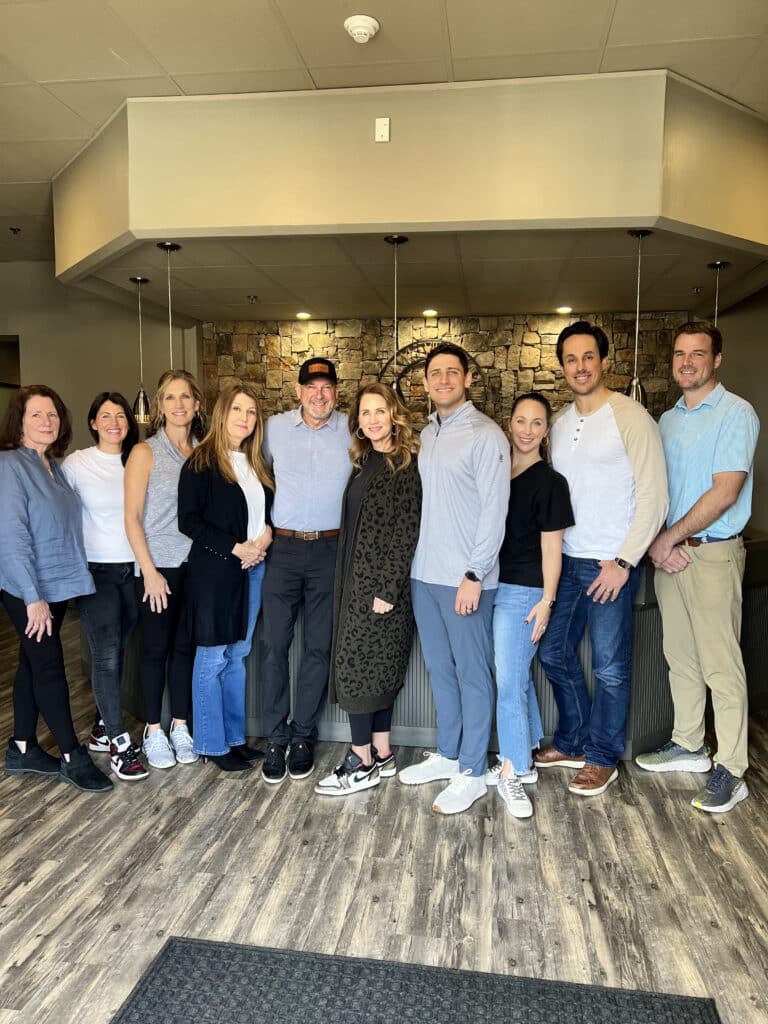
The company’s flagship product is the Guardian Cap, which was created to advance the standard football helmet by dispersing some of the energy that is generated during impacts. Check out a video HERE.
Insight Sourcing celebrated 20 years in business, announcing 20% firmwide growth in 2022, with 84 new team members added, of whom 23 joined as part of an acquisition.
Global Aviation celebrated 25 years of success while at the same time launching another company in the aerospace industry.
In February, the city began encouraging businesses to connect their security cameras with the Fusus network. Fusus is a nationally recognized public safety technology provider that has operated out of its headquarters in—you guessed it–Peachtree Corners since 2019.
The platform links cameras together and sends the feed to the West Precinct where Gwinnett Police officers can see situations in real-time and respond accordingly.
The cameras have helped solve homicides and other crimes in various cities, including Peachtree Corners. In July, Fusus made the annual Inc. 5000 list, the most prestigious ranking of the fastest-growing private companies in America.
Peachtree Farm, located in Technology Park, began attracting some attention on a grand scale this year, starting with a visit from Arthur Tripp Jr., the executive director of the USDA Farm Service Agency who visited Peachtree Farm in February.
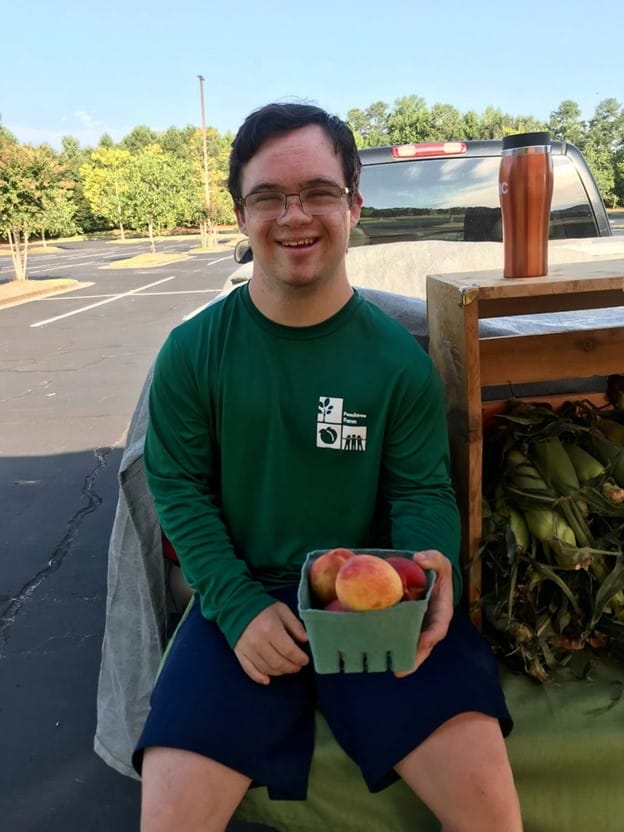
Members of the Gwinnett County Farm Bureau and the Georgia Farm Bureau also visited Peachtree Farm in June to learn more about its operations and areas for possible collaboration.
Congresswoman Lucy McBath visited the farm this fall. The farm, located on Research Court, provides an inclusive and accessible community fostering the social, emotional and physical health and wellness of adults with disabilities.
Peachtree Farm first opened in 2021 to create jobs for those with intellectual and developmental disabilities.
In April, professional cyclists descended on Technology Parkway participating in the Curiosity Lab Criterium, a series of races on the streets of Peachtree Corners within the living laboratory environment of Curiosity Lab.
In May, North American Properties broke ground on The Forum redevelopment project, a great relief as there had been concerns about how to best generate more activity at the 20-year-old center.
North American Properties is redeveloping and revitalizing the property, adding a boutique hotel, food hall, open green spaces, new retail spaces and 381 apartments.
A 300-space parking deck will be constructed near Belk to allow for some parking to be reconstructed as open green space. Several new stores and restaurants have opened or are opening at The Forum, including Peche, lululemon and High Country Outfitters as well ass Petfolk Veterinarian clinic.
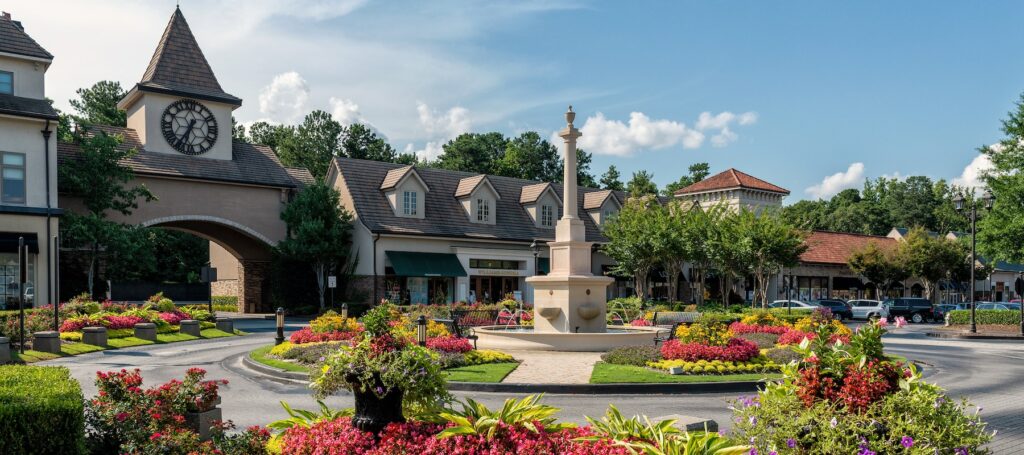
Politan Row will open at the Forum, part of the multi-million dollar renovation project by North American Properties. Politan Row, which has locations at Colony Square in Atlanta, as well as Houston and Chicago, will include seven independently owned restaurant spaces, a full bar, an outdoor patio along greenspace and a standalone restaurant and wine bar.
The German American Chamber of Commerce visited Curiosity Lab in May to learn more about Georgia, Gwinnett County and specifically Peachtree Corners. Also, a delegation of energy, technology and sustainability leaders visited the City of Peachtree Corners in October for several days, learning about area companies, Curiosity Lab and about how the city developed.
This year, Seoul Robotics established its United States office in Curiosity Lab at Peachtree Corners. The company’s presence in Curiosity Lab is fueling further development of a groundbreaking 3D perception platform.
Also this year, Siemens joined Curiosity Lab to support bringing 5G charging and electrification solutions to the United States.
Soliant, a leading provider of specialized healthcare and education staffing services, has been hiring hundreds of new employees across five offices in the Southeast. This expansion of approximately 300 people will give Soliant the internal resources to meet the growing nationwide demand for healthcare and education professionals.
Also, in terms of health and wellness, Atlas Behavioral Health opened at 3850 Holcomb Bridge Road while space was outfitted in June at 4941 S Old Peachtree Road for a Fyzical Therapy and Balance Center.
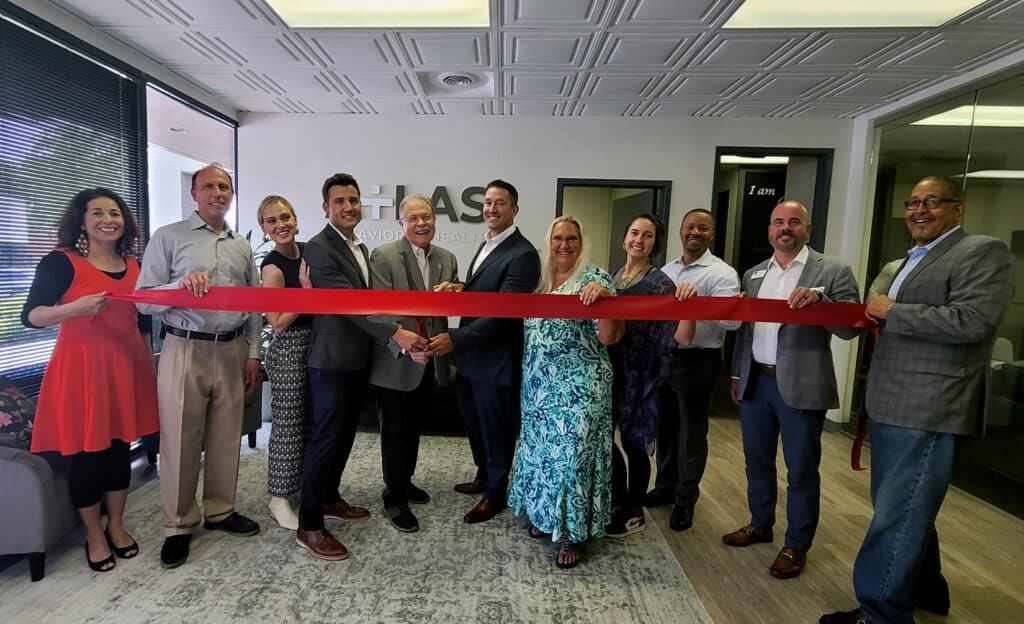
In June, Peachtree Corners was ranked #1 in Georgia and #19 in the nation in this year’s edition of the Fortune 50 Best Places to Live for Families. In August, Peachtree Corners was listed as one of the best places to live in Georgia by Niche.com.
On the environmental front, I can think of a few things coming out of Peachtree Corners this year which will likely help the world.
For example, Sidel, which manufactures packaging (among other things), has introduced a new bottle. Sidel announced a partnership with Coca-Cola Europacific Partners.
The company has been experiencing a great deal of growth and continues to hire more and more people. The bottle, which is for carbonated soft drinks, has a lighter neck and tethered cap. The tethered caps are expected to boost collection and recycling efforts, while preventing litter.
Pond Constructors Inc., Peachtree Corners, was awarded a $13 million modification contract to maintain and repair capitalized petroleum systems and facilities at the Joint Base Pearl Harbor-Hickam, Hawaii.
Also, ASHRAE (the American Society of Heating Refrigerating, and Air Conditioning Engineers) has published a pioneering code-enforceable standard developed to reduce the risk of infectious aerosol transmission in buildings.
There was some other activity in Technology Park as well. Specifically, ASBN Coworks opened at 420 Technology Parkway, in the heart of Tech Park.
DW1, previously known as Discount Waste, Inc., cut the ribbon on its new office at 250 Scientific Drive NW.
A Florida-based investment firm acquired four properties in Technology Park in August, all part of a portfolio selling for roughly $23.8 million.
The second-largest sale in Metro Atlanta that quarter, SF Partners purchased 30, 35 Technology Parkway South and 190 and 192 Technology Parkway from Terracap; a total of 247,208 square feet.
Thank you for reading about some of the impressive business happenings in our city this year. As we gear up for 2024, we looked forward to hearing about more successes, and helping to make sure the city’s businesses continue to grow and thrive.
Happy Holidays!
Mike Mason, Mayor
Related
Read the Digital Edition
Subscribe
Keep Up With Peachtree Corners News
Join our mailing list to receive the latest news and updates from our team.
You have Successfully Subscribed!

Exploring Israeli Innovation in the Smart City Sector with Einav Gabbay [Podcast]

BRACK: Peachtree Corners to lose Peterbrooke Chocolatier

Georgia United Methodist Foundation Announces Changes to Finance Team

North American Properties Revitalizes Avenue East Cobb

Spring Voting Will Determine Important Gwinnett School Board Elections

Kendra Scott Opens New Store At The Forum

Local Non-profit Boy With a Ball Announces Dates for Upcoming Conference

Kendra Scott Opens New Store At The Forum

Local Non-profit Boy With a Ball Announces Dates for Upcoming Conference

Spring Voting Will Determine Important Gwinnett School Board Elections

BRACK: Peachtree Corners to lose Peterbrooke Chocolatier

Georgia United Methodist Foundation Announces Changes to Finance Team

North American Properties Revitalizes Avenue East Cobb

Exploring Israeli Innovation in the Smart City Sector with Einav Gabbay [Podcast]

North American Properties Secures 3 New Brands for The Forum

Light up the Corners [Video]

Capitalist Sage: Business Leadership in Your Community [Podcast]

Cliff Bramble: A Culinary Adventure through Italy

Top 10 Brunch Places in Gwinnett County

A Hunger for Hospitality

THE CORNERS EPISODE 3 – BLAXICAN PART 1

Top 10 Indoor Things To Do This Winter

The ED Hour: What it takes to Remove Barriers from Education
Peachtree Corners Life
Topics and Categories
Trending
-
Business1 week ago
BRACK: Peachtree Corners to lose Peterbrooke Chocolatier
-
Education5 days ago
Spring Voting Will Determine Important Gwinnett School Board Elections
-
Business1 day ago
Kendra Scott Opens New Store At The Forum
-
Doing Good3 days ago
Local Non-profit Boy With a Ball Announces Dates for Upcoming Conference









